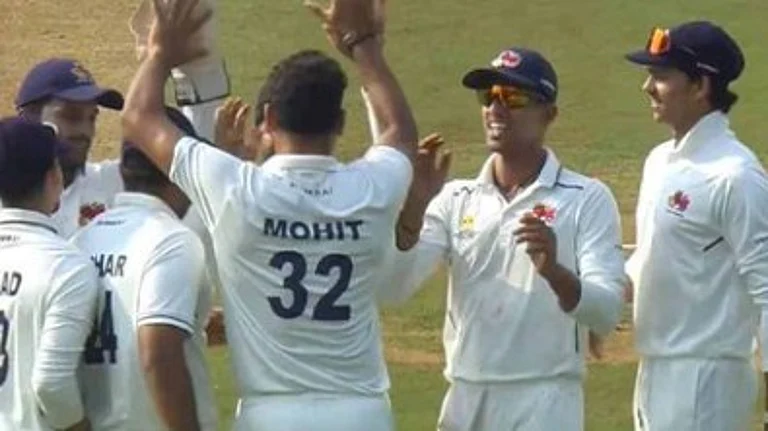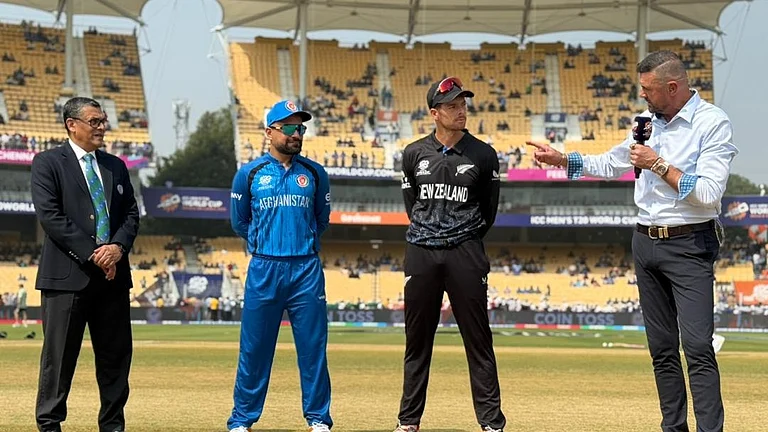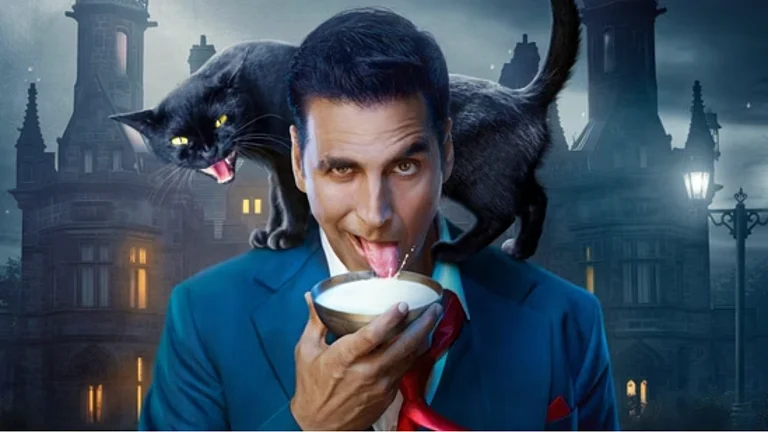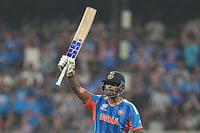This Press Conference was called to brief you on Prime Minister’s visit to Germany, to St. Petersburg, andto Evian. However, I will take this opportunity to brief you also on the meeting of the CCS that took placetoday. In fact, I will begin with that.
In its meeting of May, 26th, the CCS considered matters relating to Iraq. India welcomes the fact that the UNSecurity Council has reached agreement on the way forward in Iraq, as expressed in the United Nations SecurityCouncil’s Resolution 1483. We note that in the Resolution, which is under Chapter 7 of the UN Charter, theUnited Nations has appealed to all its member-States to assist the people of Iraq in their efforts to reformthe institutions in their country and rebuild their country, and to contribute to the conditions of stabilityand security in Iraq.
The CCS decided that (a) India’s Ambassador to Iraq will return toBaghdad, and (b) the Ministry of External Affairs will initiate consultations with the United Nationsincluding the UNSG Special Advisor, the Authority in Iraq as recognized in UN Security Council Resolution1483, and the concerned countries to obtain clarifications on the parameters and scope of the appeal mentionedabove. MEA will report back to the CCS on these consultations. That is it on that.
With regard to Prime Minister’s visits to these three countries, he will begin with the visit to the FederalRepublic of Germany from 27 to 30 May. This is the first visit by an Indian Prime Minister to Germany innearly a decade, the last being that of former Prime Minister Shri P.V. Narasimha Rao inFebruary 1994. The visit assumes special significance since it is a follow-up of a decision taken during theChancellor Schroeder’s visit in October, 2001 to hold the annual summitsalternately in New Delhi and Berlin. Our Prime Minister will be accompanied by Shri Yashwant Sinha, theMinister of External Affairs and Shri Arun Jaitley, the Minister for Commerce and Industry.
You are probably aware that a high-level interaction in the last two years had been maintained between Indiaand Germany, as envisaged in the agenda for Indo-German partnership in the 21st century signed in May, 2000between the Foreign Ministers of the two countries. There have been several exchanges of high-level visits.From the Indian side, the Ministers of External Affairs, Finance, Human Resources Development, Commerce, Home,Health; the Minister of State for External Affairs and the Minister of State for Non-Conventional EnergySources have visited Germany. From their side there have been two visits by their Foreign Minister and a visitby their Defence Minister, apart from a highly successful visit of the German Chancellor who was accompaniedby his Ministers of Economics and Technology and Interior.
The most recent visit from the German side has been that of the German President Johannes Rau during 1-6 March2003 underlying the continuing priority which Germany accords to this political and strategic dialogue at thehighest political level. I may also mention that the German Foreign Minister’s visit to India is underconsideration for 4th July. During his stay in Berlin the Prime Minister will call on President Rau, hewill have a meeting with Chancellor Schroeder who will host a lunch in his honour.
The German Foreign Minister Mr. Fischer will call on the PrimeMinister, he would also be having a separate meeting with the EAM. Prime Minister will also have a meetingwith the President of the German Bundelstag and interact with the German Parliamentarians including themembers of the Indo-German Parliamentary Friendship Group. You may be aware that recently the Speaker of theLok Sabha has constituted an Indo-German Parliamentary Group in the IndianParliament to deepen and strengthen Parliamentary interaction between the two countries.
A Parliamentary delegation from India recently visited Germany. Whenthe Prime Minister is in Berlin, the Mayor of Berlin will receive him at Brandenburg Gate wherehe will sign the Golden Book. The Leader of the Opposition and the President of the Christian Democratic UnionMs. Angela Merkell and the President of the Free Democratic Party will also call on the Prime Minister.Finally the Prime Minister will interact with the Indian community in a reception hosted by our Ambassador inBerlin.
Prime Minister’s visit also includes a visit to Munich, the leading hitech region of Germany. The recentopening of our Consulate in Munich is recognition of the potential for expanding our trade and commercial tieswith that State. Bavaria with its eleven universities, 15 technical colleges, and an economy dominated byhitech sectors like electronics, information and communication technology, mechanical engineering, automotiveindustry, and aerospace industry provides a very good opening for Indian businessmen in European markets.
Many Indian companies have opened their branch offices in Munichrecently such as Tata Consultancy Services, Hansoft Systems, TSC Software, Wipro, Satyam, Infosys, etc.Bavaria is also keen to develop business research and academic links with India in particular, and in Indiawith Karnataka. The highpoint of this programme in Munich will be the interaction with Germany industry andbusiness organized by Federation of German Industry and the meeting with Minister President of the State ofBavaria, Mr. Stoiver, who will also host a dinner for our Prime Minister. Before his departure for St.Petersburg on May 30, the Prime Minister will also have a meeting with Indologists and members of the Friendsof India Group in Munich.
Germany as you know is one of India’s major strategic partners. Maintaining close political ties withGermany is a priority for India given Germany’s stature and influence in major international institutionsand its leading role within the EU. The decision to institutionalize annual summits demonstrates theimportance that both countries attach to the relationship. The Indo-German Strategic Dialogue, the Indo-GermanConsultative Group, the Joint Working Group on Terrorism, the Joint Commission and various bilateral WorkingGroups have contributed to the development of a multi-faceted relationship between our two countries. Ineconomic terms, Germany is India’s fourth largest trading partner, sixth largest investor, although Germaninvestment has dropped substantially and this is something which we need to address and we hope that the PrimeMinister’s visit and especially the interaction with German industry in Munich will help us to redress this.
Germany has been a partner in India’s education system particularly in the field of technical education,Industrial Training Institutes. It is one of our oldest partners in science and technology with institutional cooperation beginning with the establishment of the IIT, Chennai in 1959 and theopening of the German Academic Exchange Service in 1960. In the past 25 years, more than 650 joint researchprojects have resulted in 1200 joint research justifications, monographs. It will be useful to expand thesecontacts.
Our objectives from this visit would be (1) to project the new Indiain high level political interaction and in interaction with the businesscommunity; (2) to promote India’s strength in the knowledge- based industries; (3) to demonstratewillingness of the Indian industry to invest in the German market and seek greater German economic engagementin India; (4) to promote science and technology and educational exchanges through student exchanges andtie-ups with educational institutions; (5) to use the democratic dividend and project ourselves as a keystrategic partner of Germany in the maintenance of international peace and stability; and (6) to outline ourvision of a cooperative, integrative international framework that would permit free flow of people, goods andcapital.
After his visit to Germany the Prime Minister will go to St. Petersburg. He will be in St. Petersburg on 30-31May in the context of tercentenary celebrations of the city of St. Petersburg. President Putin speciallyinvited the Prime Minister to participate in the celebrations during President Putin’s visit to New Delhi inDecember, 2002. The invitation was renewed. Prime Minister’s programme includes participationin various events organised on the Russian side in connection with the tercentenary celebrations. I have thelist of places that he is going to visit. I do not know how much interest you may have in those. The PrimeMinister may not himself attend all these events because the programme is quite heavy. It is Isaac Cathedral,State Academy, Marinsky Theatre, Palace of Congress, Acatarena Palace, State Museum,State Hermitage Museum, etc., etc.
I have a lot of write ups here about Indo-Russian bilateral relations but clearly this visit is not bilateral.So, I do not think I will tax you and myself by reading out all these details. But basically, the invitationto our Prime Minister and the keenness to have our Prime Minister was intended to signal to us how keen theRussian side is to have our Prime Minister present there at these tercentenary celebrations. You can wellimagine that we have had very high level exchanges of visits very regularly with Russia. Normally speaking,the Prime Minister would not have gone to an event of this nature because of the fact that he is hard-pressedfor time. But, from our side also it is intended to reciprocate the Russian gesture in inviting us to also toconvey the importance we attach to a very strong and growing strategic relationship with Russia.
After his visit to St. Petersburg the Prime Minister will visit Evian for the G-8 Summit in last dialogue. Hewill be attending the informal summit prior to the formal G-8 summit meeting in Evian at the initiative ofPresident Chirac. The other countries invited are China, Malaysia which is the Chairman of NAM, Brazil,Mexico, Saudi Arabia, Switzerland, NEPAD-5 from Africa, Egypt, Senegal, Algeria, South Africa, Nigeria, Greeceas EU President, Mr. Prodi as President of the European Commission, the UN Secretary-General and Heads of IMF,World Bank and WTO.
President Chirac’s proposal is a continuation of the initiativetaken earlier by Japan, Italy and Canada. During the Okinawa G-8 Summit in 2000, informal consultations hadbeen held with leaders of developing countries. During Italy’s chairmanship in 2001, Italy had sought toengage in a more formal dialogue with non-G-8 members on poverty reduction which was the main theme of the2001 Summit. But Italy has invited only the President’s of South Africa, Mali and Nigeria as well as thePrime Minister of Bangladesh. In 2002 G-8 Summit Heads of State of Algeria, Nigeria, Senegal and South Africahad attended. So, you can see that the Evian G-8 Summit Enlarged dialogue is intended to consult emergingcountries as well as least developing countries on the major issues facing the world today and is a part ofPresident Chirac’s desire to see greater involvement of the non-G-8 countries in the consultative process ofthe G-8.
During the New Year Address to the diplomatic corps on January 7, 2003, President Chirac had elaborated on theproposed themes of this informal Summit. These include (1) solidarity with particular emphasis on thepartnership for Africa’s development and access to water for all - that explains the invitation to NEPAD-5;(2) the spirit of responsibility that not only Governments but all economic actors, especially businesscorporations, need to display in the financial, social, environmental and ethical spheres; (3) security inorder to strengthen the fight against terrorism and the proliferation of weapons of mass destruction; and (4)democracy through ongoing dialogue with civil society and with other States.
In his speech on the G-8 Summit onWednesday, 21 May, President Chirac again reiterated the themes of security, growth and stability, andemphasized the special needs of Africa - continent which is marginalized but whose leaders want to change thesituation. The discussions will also cover such issues as terrorism, proliferation of weapons of massdestruction, drug-trafficking and organized crime which are all issues high on the international agenda.
The invitation to our Prime Minister to attend the informal summit prior to the formal G-8 Summit demonstratesalso the importance of the bilateral relationship between India and France. I will end here. I am ready toanswer any Questions that you may have.

























